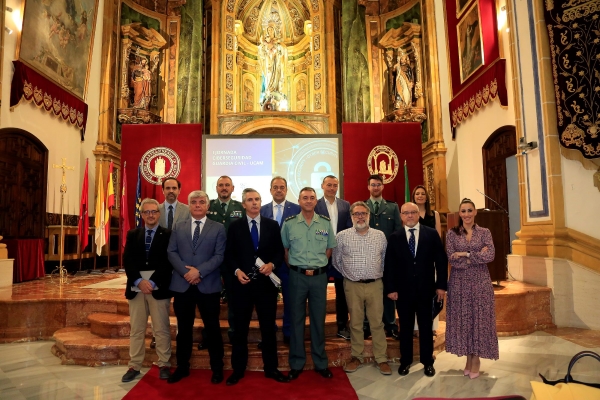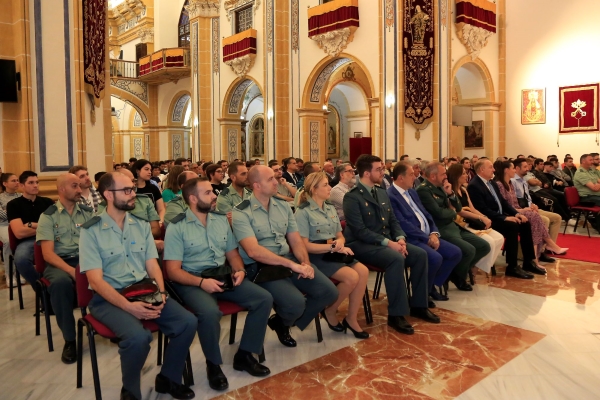15% of crimes are committed online
Experts insist on the need to educate citizens and businesses as the most effective way to fight cybercrime
Cybersecurity, ‘hacker’, ‘phishing’, ‘eCrime’, cybercrime or ‘dark web’ are terms
gradually becoming more and more familiar to everyone. Cybercrime is growing
exponentially, operates in many different ways and affects everybody, from citizens to
states to SMEs and large companies. Given the relevance of cybercrime, UCAM
Degrees in Criminology and Computer Engineering, together with the Guardia
Civil, have organised the Cybersecurity Day, to review the key aspects of this field and
analyse the latest trends.
Attending the opening ceremony were Pablo Blesa, UCAM Vice-Rector of
International Relations and Communication; Jesús Arribas, Chief Colonel of the 5th
Zone of the Guardia Civil; José María Caballero, Vice-Dean of the Degree in
Criminology; and Miguel Ángel Guillén, Academic Secretary of the Degree in
Computer Engineering. Blesa highlighted how important it is to hold this event at the
university since ‘we must all be aware of the risk of cyber-attacks in which they can
steal valuable information from us, but there are also states sponsoring attacks on
institutions and interests with destabilising consequences for other countries’.

The Guardia Civil's chief colonel, Jesús Arribas, insisted on the importance of online
crime: ‘The increase in this type of crime in the Region of Murcia is in line with the
national rate. We can say that 15% of crime and offences are committed online’.
One of the reasons for the exponential growth of cybercrime, according to José María
Caballero, is the fact that it is ‘a particularly favourable terrain for evading
responsibility, as there are computer tools that make it increasingly difficult to identify
who is behind this type of behaviour’.
Education, key in the fight against hackers
‘We prevent more attacks by educating society than by fighting cybercrime directly’.
Juan Salom, Chief Colonel of the Guardia Civil's Cybersecurity Coordination Unit,
gave a talk on the ‘Ecosystem of cybercrime’, in which he stressed that this type of
crime ‘generates more profits than other crimes, such as drug trafficking, and is
also a very diverse type of crime. The paedophile has nothing to do with the hacker who
swindles, nor the one who spies on his partner's mobile phone with the one who hijacks
a company's data. Each of them acts in a different way’.

To avoid some of the most frequent attacks, Luis Hidalgo, head of Institutional
Relations at the Spanish National Institute of Cybersecurity (INCIBE), offered some
basic recommendations, reminding us that the most common type of attack is ‘being
asked for personal data to receive offers or gifts that will never arrive, sexual extortion
and ‘smishing’, which is offering data on a company to receive non-existent economic
aid’. To avoid this type of attacks, and similar ones, he recommended not to trust offers
that may seem suspicious, or from people or institutions that we have not clearly
identified, before we give our data.




